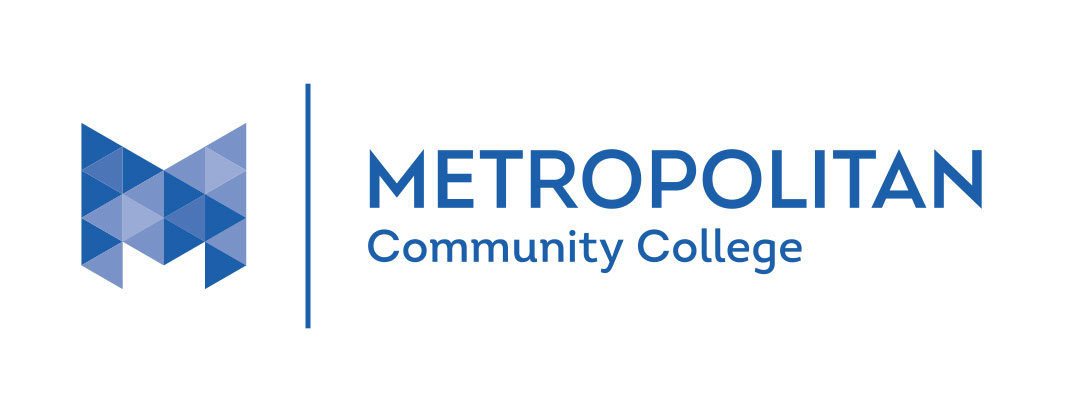To maintain eligibility for Federal Student Aid (FSA) programs, students must meet Satisfactory Academic Progress (SAP) standards for grade point average, pace, and timeframe to degree. It is a student’s responsibility to become familiar with their college’s SAP Policy if they wish to receive Federal Student Aid (FSA). Failure to meet SAP places a student’s financial aid in jeopardy. The Financial Aid SAP policy also applies to students using the Nebraska Waiver of Tuition Program (NE R.S.S. 80-411).
Explore Programs
Satisfactory Academic Progress (SAP)
Standard 1: Cumulative Grade Point Average (GPA)
To receive or continue to receive financial aid, students must maintain a minimum cumulative GPA. The cumulative GPA requirement differs based on the number of credit hours attempted.
| Associate Degree Program | Certificate of Achievement or Career Certificate Program | |||
| Credit hours attempted | Minimum GPA required | Credit hours attempted | Minimum GPA required | |
| 0 - 29.5 | 1.5 | 0 - any | 2.0 | |
| 30 - 79.5 | 1.75 | |||
| 80+ | 2.0 | |||
Standard 2: Completion Ratio (completed/attempted hours = 67%)
The percentage of attempted credit hours completed is measured by dividing the cumulative number of completed credits by the cumulative number of attempted credits. The minimum requirement is 67 percent. For financial aid purposes, a course is considered complete if a grade of A, B, C, D, P, or R is earned. Grades of F, W, and I are considered unsuccessful grades and reduce the completion rate.
Standard 3: Maximum Credit Limit
The maximum time frame for the completion of a degree or certificate is limited by federal regulations to 150 percent of the published number of credit hours required to complete the degree or certificate. This includes transfer credits and all attempted credit hours, including completed credits, audits, incompletes, withdrawals, CLEP, and repeated or failed classes. Students must be able to complete their program with the maximum credit limit. Once it becomes mathematically impossible to complete within the maximum credit limit students are placed into denied (DEN) status.
Appeal Procedures
Students placed in denied status have the right to appeal. All appeals are reviewed by the Satisfactory Progress Committee. When reviewing appeals, the committee looks for mitigating circumstances (unusual or extraordinary circumstances beyond the student's control that the student could not have planned for). SAP appeals are reviewed quarterly according to the published deadlines.
How to Submit an Appeal
To submit an appeal, follow these steps:
- The Financial Aid Satisfactory Progress Appeal Form is an electronic form available to student through their Financial Aid Self Service. In Self Service, the student should review their Satisfactory Academic Progress by clicking on the SAP status banner. From there, the SAP appeal form is available by clicking on the SAP Appeal Form link under “Helpful Links.” Student appeals are available for all students requesting Federal Financial Aid and applicable Nebraska State Tuition Waiver eligible students. If you are requesting Federal Aid, you must have a FAFSA on file.
- While completing the electronic Appeal Form, you will be asked to respond to three questions:
- Explain the circumstances contributing to your inability to maintain Financial Aid Satisfactory Progress.
- Explain how you have addressed any circumstances.
- Confirm your program of study and how many hours to completion.
- Submit any supporting documentation to aid in the review of the appeal
Review of Appeals
The Financial Aid Satisfactory Progress Committee reviews appeals. Students are notified of the committee's decision by their MCC student email account and in Financial Aid Self Service. When an appeal is approved, aid is reinstated for the quarter the student requested the appeal. If the student does not attend during the reinstatement quarter, the reinstatement will apply to next quarter of enrollment. When appeals are denied or students decide not to appeal, students are responsible for payment of all educational charges on their MCC Account until they appeal or successfully return to good standing.
Financial Aid Satisfactory Progress Statuses
Statuses are determined for all students at the end of each quarter of enrollment.
- Good Standing (GS) - Good standing status is given to students who meet all three Satisfactory Progress standards.
- Warning (WRN) - Students who do not meet SAP standards after their first quarter are placed warning and may still receive financial aid in the subsequent term. Their status may change back to good standing if they progress in SAP or move to denied if they continue to fail SAP standards.
- Denied (DEN) - Students who do not meet SAP at the end of a warning quarter, or those who are over the maximum timeframe are moved to denied status. Federal Student Aid (FSA) programs are denied. However, students are afforded the opportunity to appeal the denial.
- Monitoring/Probation (MON) - Students with an approved appeal are placed on monitoring/probation status for the subsequent quarter. Students on probation must meet the requirements for continued financial aid eligibility; complete all attempted credits, achieve a minimum quarterly GPA of 2.0 or higher, and attempt no more than 150 percent of the credits required for their program of study. While on probation, students must follow the academic program approved in their appeal and cannot change their program of study until regaining good standing.
- Extended Monitoring (MNX) - Students may remain in extended monitoring until they regain good standing.
- Max Time Approved (MAX) - Students with an approved max timeframe appeal are eligible for aid for the subsequent quarter. While on max time approved status, students must follow their academic program.
- Max Time Extended (MXE) - Students may remain in extended max timeframe monitoring until they complete their program so long as they continue to meet the terms of their approved appeal.
Withdrawing From Classes (R2T4 Policy)
Federal Student Aid Recalculation (R2T4) Policy
Students may withdraw from one or all classes through any of the following methods:
- Through Student Self Service
- By calling the MCC Contact Center at 531-MCC-2400
- By meeting with an Academic Advisor
Read more about the details regarding the Calculation of Title IV Funds.
Audit Courses
Repeated Courses Policy
Students using federal financial aid to pay for courses may not use financial aid funds to repeat a course in which they earned a C or better. A repeated course is only financial aid-eligible under the following circumstances:
- The student has not yet received a grade of R, P, D, or better in the class; or
It is the first time the student has repeated the class after receiving a grade of R, P, D, or better.

